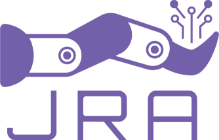We can all agree that science, technology, engineering and mathematics (STEM) industries have grown substantially over the last fifty years, but why should you as a parent or student be on the lookout for opportunities within these industries? The answer is clear — the future will always be changing!
Back in the day, many individuals learned some STEM skills from playing with Lincoln Logs or LEGOs. However, as technology continues to advance, so do toys. Nowadays, toy companies have combined high-tech robots to provide hours of fun, creativity, and adventure for future innovators.
STEM History in the U.S.
In the early 2000s, the disciplines of STEM became increasingly integrated into several key publication reports. Rising Above the Gathering Storm (2005), a report from the U.S. National Academies of Science, Engineering, and Medicine emphasized the importance of jobs in STEM and continued education to address societal issues. U.S. students were reported to not be as successful in STEM disciplines as students around the world.
This international comparison propelled the discussion of U.S. future education and workforce needs. Thus, the amount of STEM-based education in schools grew exponentially.
The Future of STEM
Today’s students are tomorrow’s pioneers. The craze for STEM education has been ignited in young students. This may come from the readily available technology that has been at their fingertips from the moment they are able to use anything with a screen.
Occupations in STEM-related professions are some of the quickest developing careers and best paid of the 21st century. The need for experienced professionals in STEM has gone on for decades and will continue to do so as technology in our world advances.
What Students Can Learn from Robotics
While many think robotics is for middle or high schoolers, research shows that when robotics and STEM principles are introduced in pre-K to second grade, most children are able to master the basics of robotics and programming skills. Studies show that in addition to STEM literacy, introducing the benefits of robotics encourages students to work on broader skills for personal, professional and teamwork development such as:
1. Problem-solving skills
Problem-solving uses logic and imagination to make sense of a predicament. It allows students to understand why and how things work, as well as how to resolve an issue they run into when working on a robotics project. The best problem solvers are able to actively anticipate future problems and act before they become an issue.
2. Creativity
Students develop out-of-the-box thinking skills to be displayed at robotics competitions as well as other audiences. It can also be viewed to foster a new approach to a problem or resolve a conflict in a team setting. Creativity plays a crucial role in an individual’s future career as employers seek to find employees who can think creatively and bring new ideas to the workplace.
3. Collaboration
Collaboration with others helps teams, clubs, and organizations to successfully work together towards a common goal. Collaboration in these settings also incorporates many other necessary skills in order to function properly, including communicating clearly and effectively, actively listening, and taking ownership of one’s work.
These are just a few of the skills that students can learn from robotics, but it doesn’t end there. The opportunities for growth within learning about robotics and STEM have been life-changing for many!
How Johnston Robotics Association Can Help You Succeed in the Future
Johnston Robotics Association (JRA) is a group of student robotics teams based in Johnston, Iowa, affiliated by For Inspiration and Recognition in Science and Technology (FIRST). FIRST is the “world’s leading youth-service nonprofit advancing STEM education.”Through the efforts of FIRST, students are able to develop a passion for STEM industries and knowledge that will help them succeed in today’s growing competitive workforce.
JRA supports students in becoming leaders in STEM and robotics. Through our educational experiences, students foster skills that will prepare them for their futures. We believe that every student has the potential to be great! Our community prepares young individuals for successful futures through developing skills in teamwork, problem solving and communication.

Recent Comments